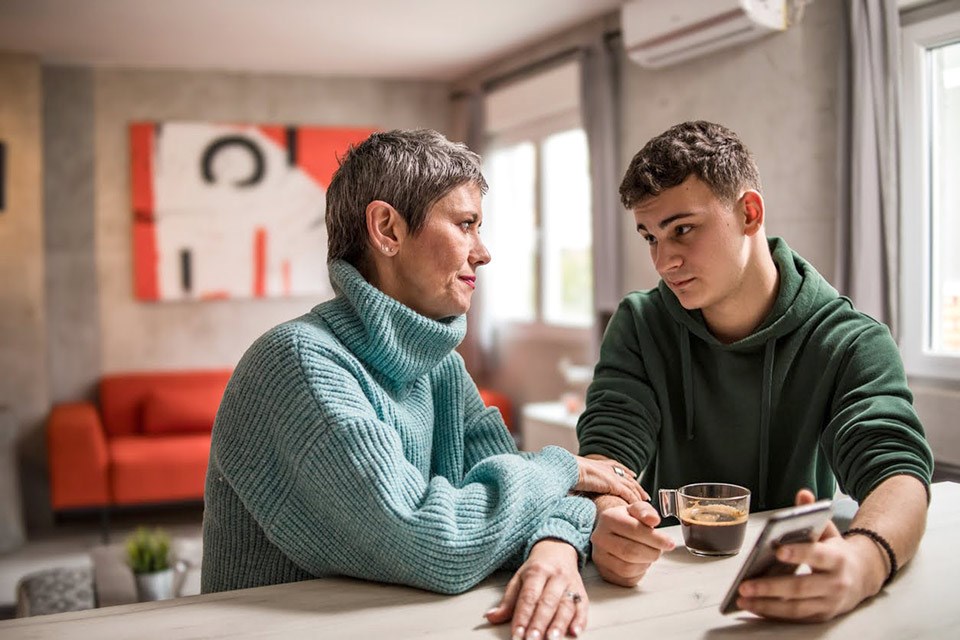It begins with a singular, transformative decision – the moment a person decides that help is needed.
Far from a time to dwell on the shame of past decisions or behaviours, it is instead a chance to celebrate clarity and purpose.
And the expert clinical and medical teams at Homewood Ravensview are there to help with these life-affirming transitions.
“It starts off with the individual’s courage to come to treatment, because it is incredibly brave to accept that you need help,” says manager of clinical programs at Homewood Ravensview Dr. Kyla Roberts. “Even if there was a lot of pressure from other people in the individual's life in order to get them through the front door, that's okay.”
Located in a pristine wilderness setting near Victoria, the Homewood Ravensview treatment facility has proudly launched the My Path Program, Canada's first and only dedicated inpatient treatment program for young adults aged 19 and over who may be struggling with any number of mental health or addiction challenges.
For some, the life pivot comes as a means to leave alcohol or substance dependence behind. But for a growing number of young adults, those barriers are found in what’s commonly referred to as process or behavioural addictions. Gambling Disorder is currently the only recognized diagnosis in this category. However, researchers are investigating whether repeated engagement in certain activities, such as sex, pornography use, shopping, gambling, internet, tech and television use, can impact the brain in similar ways to substance use disorders.
“When we are referring to process addictions, we are describing a behaviour that may initially feel rewarding for the brain. But then over time, it becomes a recurrent compulsion and the individual may continue engaging in the behaviour to the point that it can have significant negative impacts on their relationships and ability to maintain their responsibilities,” Dr. Roberts explains.
The warning signs behind process addictions can manifest in several different ways: isolation; financial difficulties; fractured relationships amongst friends and family, or struggling to maintain day-to-day responsibilities at work, school or around the home. It may be difficult for the young adult to gain independence, thus family members may become more involved in supporting their loved one.
There can also be a correlation between these behaviours and other mental health symptoms that are perhaps more noticeable – increases in anxiety or depression, or retreating from previously enjoyed activities.
“Sometimes, when an individual is confronted or compassionately asked about stopping the behaviour or encouraged to choose a healthier way of conducting themselves, they may be hesitant to have these conversations and they may withdraw in the relationship,” Roberts says.
And when the time comes to accept help, the My Path model follows a comprehensive, evidence-based care regimen that provides tailored treatment plans over a nine-week period. Through the program’s integrated therapeutic approach, clients engage in group therapy and one-on-one counselling, including Cognitive Behavioural Therapy, Dialectical Behaviour Therapy, Unified Protocol and other therapies designed to help them understand underlying factors, build a greater capacity to tolerate distressing emotions and develop healthier coping strategies. Key features include a supportive peer community, skills development, a structured routine and healthy recreation.
The My Path program, available to young adults 19+, also examines challenges related to the transition to adulthood, sexuality, identity, self-esteem, and social dynamics. A physician-led interdisciplinary team guides treatment planning and helps young adults navigate their recovery while recognizing the unique challenges they face at this life stage.
“One of the most beautiful aspects of treatment that we see is people regaining a sense of self, regaining their independence and regaining a sense of fulfillment and appreciation for who they are as a human being,” Roberts says.
To learn more about Homewood Ravensview’s My Path program, visit ravensview.com/who-we-help/young-adults.

Homewood Ravensview offers expert, compassionate treatment for depression, anxiety, trauma, addiction and co-occurring conditions in Western Canada’s foremost facility for delivering evidence-based, medically-led, private inpatient treatment services.

